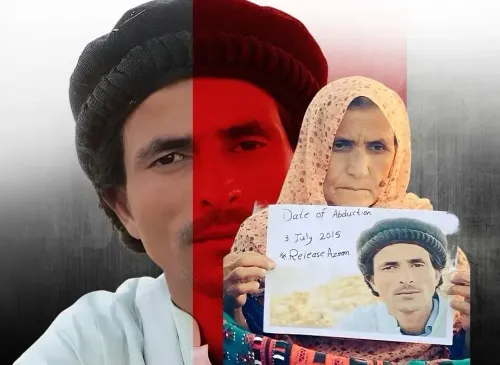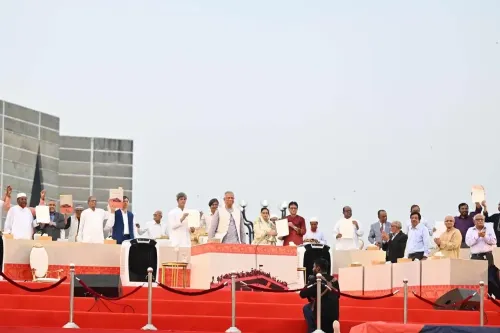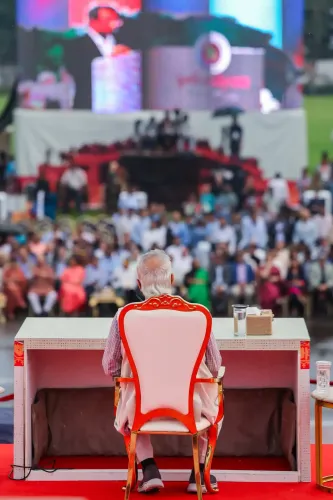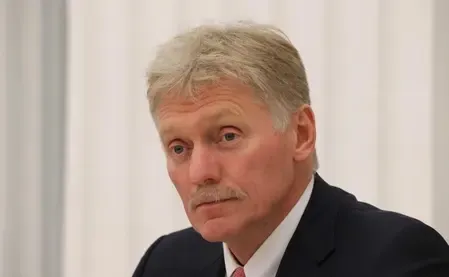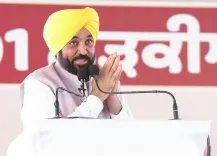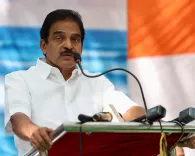Why Does Russia Call the EU's Latest Sanctions 'Illegal'?
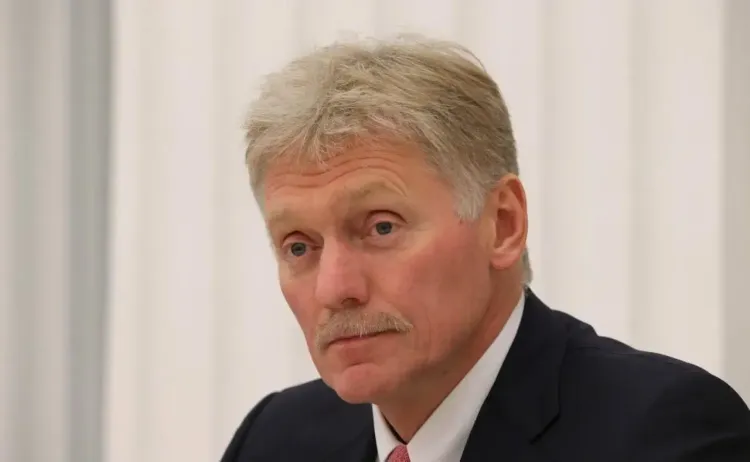
Synopsis
Key Takeaways
- Russia views the EU's sanctions as unlawful.
- The sanctions primarily target financial and energy sectors.
- The price cap on Russian oil aims to limit revenue.
- Russia asserts it has developed a degree of immunity to sanctions.
- Key EU figures emphasize the need for sustained pressure on Russia.
Moscow, July 18 (NationPress) Just hours after the 27-member European Union on Friday finalized its 18th round of sanctions against Russia due to its extensive invasion of Ukraine, Moscow labeled the action as unlawful and affirmed its intention to evaluate the new sanctions package to mitigate its effects.
According to Russian state-run news agency TASS, Kremlin spokesperson Dmitry Peskov stated, "Thus far, we have observed a consistent anti-Russian stance emanating from Europe. We have continually articulated that we regard these unilateral restrictions as illegal and fundamentally oppose them."
Peskov reiterated that the Russian leadership will meticulously analyze the latest sanctions package to reduce its impact.
“Certainly, this new package necessitates a detailed examination to minimize its repercussions,” Peskov remarked.
He also pointed out that Russia has cultivated a level of resilience against sanctions throughout the ongoing waves of Western restrictions.
“Over time, we have developed a certain immunity to sanctions and have adapted to our current circumstances,” he added.
The sanctions package primarily targets Moscow's financial and energy sectors and follows Russian President Vladimir Putin's refusal to agree to an unconditional ceasefire.
The EU decided to reduce the price cap on Russian oil exports to third nations to 15 percent below market value. This aims to diminish Russia's revenue by prohibiting shipping and insurance firms that allow Russia to sell above the price cap.
“I appreciate the agreement on our 18th sanctions package against Russia. We are attacking the core of Russia's military operations. This includes targeting its banking, energy, and military-industrial sectors, along with implementing a new dynamic oil price cap. The pressure will persist until Putin concludes this conflict. Thanks to the Danish Presidency of the Council of the EU 2025 for this initial success,” stated Ursula von der Leyen, President of the European Commission, in a post on X.
Kaja Kallas, Vice-President of the European Commission, also took to social media to describe this as “one of the most potent sanctions packages against Russia to date.”
“We are further reducing the Kremlin's war budget by targeting 105 additional shadow fleet vessels, their supporters, and restricting Russian banks' access to funding. The Nord Stream pipelines will be banned. We are lowering the oil price cap and intensifying pressure on Russia’s military industry, Chinese banks that facilitate sanctions evasion, and obstructing tech exports utilized in drones,” Kallas noted on X.
“For the first time, we are designating a flag registry and the largest Rosneft refinery in India. Our sanctions also address those indoctrinating Ukrainian children. We will continue to escalate the costs, so that halting aggression becomes the sole viable path for Moscow,” she added.

